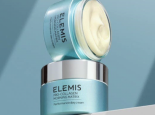Sleep tight

Sleep is essential for health, happiness and wellbeing. Clinical Hypnotherapist Manisha Odedra explains how ‘good sleep hygiene’ can help us to get a better night’s sleep
Sleep can be quite elusive for some. While the rest of the world is drifting into slumber, some of us are left frustratingly awake: Tossing and turning through the night, your brain inconveniently reminding you of everything that’s ever gone wrong, worrying as the hours pass by and knowing it will soon be time to rise again.
Sleep is important
Sleep is important for a number of reasons. It helps us to restore, replace and rebuild what we have used during the day. In fact, scientists know that certain genes responsible for restoration are only turned on at night, while we sleep. A restful night’s sleep increases our creativity and aids our ability to come up with novel solutions to problems. It also helps us to retain information so we’re less likely to be forgetful. Sleep is certainly not an indulgence and when we sleep as we ought to our ‘stress buckets’ are effectively reduced, so we naturally rise in the morning feeling calm, rested and ready to start the day.
How much sleep?
We spend 36% of our lives asleep, so if you’re 60 years old you’ll have spent 22 years asleep already! All adults need about eight hours, though on average we only sleep for six and a half. Teenagers need at least nine hours and unfortunately on school nights they only get five. Lack of sleep can have a direct impact on our lives and affects our health, happiness, finances and relationships. It affects our mood, memory, reaction times, attitude to risk and sex drive. Not sleeping consistently leads to anxiety, low mood, weight gain and hypertension.
How to get a good night’s sleep
● Drinks: Cut back on alcohol and do not drink caffeine after 2pm or your brain will be too ‘wired’ to fall asleep.
● Calm: Make your room your sanctuary – a peaceful place of retreat with subdued colours and personalised with things you like so you feel more connected to the room and look forward to going to bed. Keep your room clutter free.
● Temperature: Make sure your room isn’t too hot or cold. Keeping it slightly cool at around 16-18°C means you are more likely to slip into sleep.
● Dark: Keep your room as dark as possible, if necessary use an eye mask.
● Stimulation: Avoid having a TV, computer or iPads in the bedroom and turn off anything with a screen at least half an hour before bed. Screens emit blue light which supresses production of the sleep inducing hormone melatonin. Without enough melatonin to make you drowsy you may be staying up too late.
● Separate: Don’t treat your room as an extension of your living room or study. There’s a good reason we say we are ‘off to bed’!
● Routine: Having a relaxing wind-down routine is tremendously helpful, whether it’s a bath, listening to gentle music or reading that allows you to begin switching off for the night.
● Reflect: Consider a gratitude diary and ten minutes of quite reflection, meditation or positive visualisation. As more research unfolds almost daily about just how vital good sleep is to physical and mental wellbeing, it’s crucial not to tolerate poor sleep or suffer in silence. Hypnotherapy is a very effective tool to help you learn how to relax and achieve a deeper, more enriching sleep.
In Mind UK
07815 460457
Image: www.freepik.com/free-photo/woman-sleeping-deeply_940136















